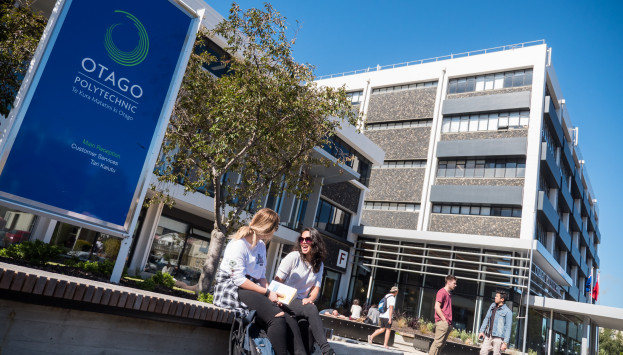Otago Polytechnic’s value to the Dunedin economy has increased by more than $100 million in the past five years.
An economic impact report, commissioned by Otago Polytechnic and released this month, shows the total value of Otago Polytechnic's Dunedin campus to the city's economy had increased from $241.8 million in 2015 to $350.4 million in 2019.
Viewed on a cumulative basis, Otago Polytechnic added more than $844 million to the Dunedin economy from 2015-2019.
The report also assessed the flow-on (or indirect) total economic impact of all Otago Polytechnic’s activities – including its Cromwell Campus and Auckland International Campus – to be $464.3 million in 2019, up from $444.5 million in 2018.
Over half (64%) of that flow-on expenditure across all campuses was driven by student spending. The remainder was derived from day-to-day Polytechnic expenditure and the impact of staff spending their wages and salaries within their local economies.
Overall, Otago Polytechnic’s enrolments in 2019 totalled 5370 equivalent full-time students (EFTS) or 8542 actual students (headcount). This represents a slight drop of total 182 EFTS to 5552 from 2018. Dunedin campus EFTS increased by 2.5% overall (domestic and international), from 3945 (2019) to 4057 (2018)
Otago Polytechnic employed 662 full-time equivalent staff (FTES) in 2019, across its campuses in Dunedin, Cromwell and Auckland (AIC).
Otago Polytechnic is one of Dunedin’s larger employers. In 2019, it employed 539.2 full-time equivalent (FTES) staff at its Dunedin campus, where 80.7% of students and 81.4% of staff are based.
“This recent economic report reflects Otago Polytechnic’s record of innovation and adaptation,” says Dr Megan Gibbons, Chief Executive, Otago Polytechnic.
“The past few months have witnessed societies, institutions and businesses readjusting to the realities brought on by a global pandemic.
“Certainly, there has been much use of the term ‘pivot’, of being nimble in a fluid environment, among organisations big and small.
“Otago Polytechnic has long been known for such nimbleness,” Dr Gibbons says.
“Our willingness and ability to remain open to collaboration, to engage with industry and community as well as lead, will be even more crucial.
“We all need to position ourselves so we are agile enough to both stimulate change, as well as react to changes, to take the opportunities that present themselves, think about our futures and what is important to us.”
Published on 11 Jun 2020
Orderdate: 11 Jun 2020
Expiry: 30 Nov 2022

